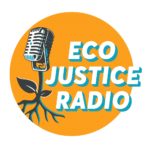

Subscribe to EcoJustice Radio:
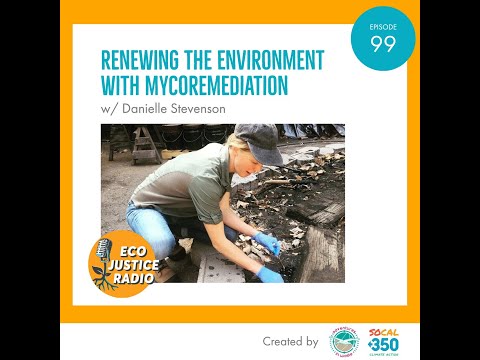
Watch this video on YouTube
Fungi Can Decompose and Remediate What Ails Us
Listen to our discussion with Danielle Stevenson, applied mycologist and founder of DIY Fungi – she teaches and consults on growing mushrooms for food, medicine, and Earth Renewal. In this episode, Danielle discusses the innovative potential of mycoremediation to digest, transform or hyper-accumulate the toxicity of heavy metals, radioactive metals, “forever” chemicals, diesel, and even mundane pollutants including cigarette butts, bike lubricants and diapers.
STORY: After the Burn: The Benefits of Bioremediation with Taylor Bright
We live in an increasingly toxic chemical soup. At least 85,000 chemicals permeate our daily lives. A large majority of which have never been tested or regulated for public health safety, including virtually all chemicals found in: our cosmetics, clothing, furniture, electronics, cleaning products, gasoline, and construction materials.
Chemicals from industrial farming, extractive and pharmaceutical industries, nuclear energy, and a wide array of consumer products have had devastating impacts upon our air, soil and water. As early as 1998, Environmental Working Group’s research showed that 90% of children were exposed daily to13 different neurotoxic pesticides.
Our health outcomes, including our response to CV19, the rise of autism in children, declining reproductive health in adults, debilitating neurodegenerative diseases in the elderly, and cancer among all ages are urgent indicators that we must change course. Enter the potential of fungi and mycoremediation for ecological restoration.
STORY: Foray into Fungi: The Art of Farming with Sam Shoemaker
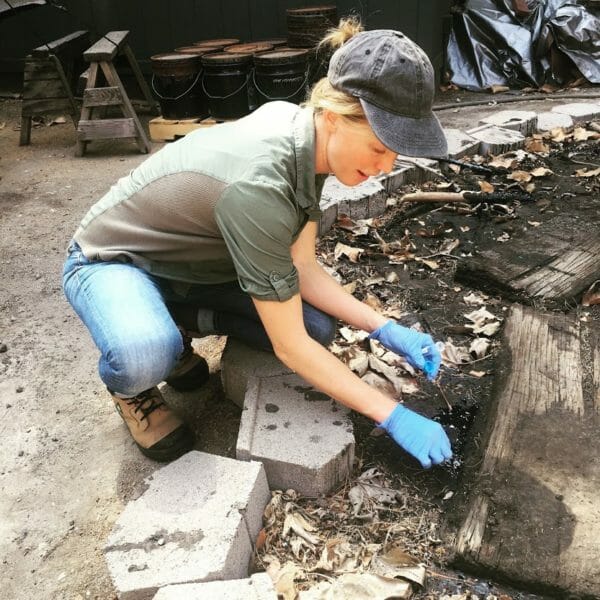

While not a save all panacea, mycoremediation is emerging as a viable option to remediate toxicity in our soil, waterways and watersheds. Mycoremediation is a 35-100 year old field, included in the larger approach of ‘Bioremediation’ – which attempts to deal with toxic substances by making them food for organisms (plants- phytoremediation; microbes- microremediation and fungi- mycoremediation) and increasing those organisms’ appetite for such substances. These processes occur naturally in soils and water as fungi and bacteria and other organisms utilize organic materials as a source of energy or as a source of materials (predominantly carbon) to build and maintain cellular structures; these natural processes can be enhanced to accelerate the effect.
STORY: Radical Mycology: The Future is Fungi with Peter McCoy
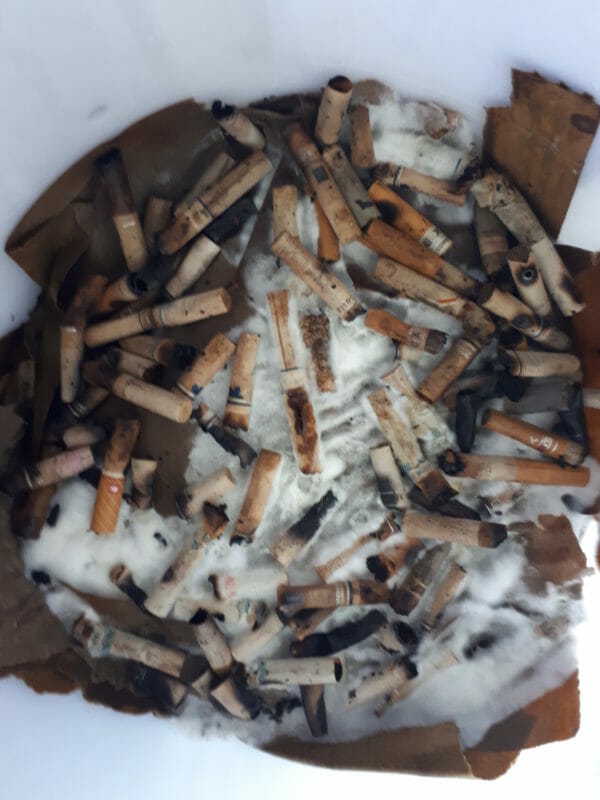

Bioremediation aligns living systems and people, by detoxifying contaminated environments through binding, extracting and/or transforming contaminants. Fungi possess digestive enzymes that can break down complex chemical toxins including: petroleum, plastics, pesticides,and munitions into less toxic chemicals. Fungi can also be used to filter water, sequester or extract heavy metals and radiation, and initiate lifecycles integral to regeneration of a healthy biodiverse ecosystem. This is known as mycoremediation- myco meaning fungus and remediation meaning to clean, resolve or correct.
In this episode, Danielle Stevenson discusses the innovative potential of mycoremediation to digest, transform or hyperaccumulate the toxicity of heavy metals, radioactive metals, “forever” chemicals, diesel, and even mundane pollutants including cigarette butts, bike lubricants and diapers.
*Danielle Stevenson is currently a PhD student in Environmental Toxicology at the University of California, Riverside, where she studies mycorrhizal fungi in soil remediation and sustainable agriculture. She is also founder and advisor to the Healing City Soils project, a ‘Future Leaders’ fellow with the Foundation for Food and Agriculture and a board member with CoRenewal and the Association for Women in Science in Riverside.
*Carry Kim, Co-Host of EcoJustice Radio. An advocate for ecosystem restoration, indigenous lifeways, and a new humanity born of connection and compassion, she is a long-time volunteer for SoCal350, member of Ecosystem Restoration Camps, and a co-founder of the Soil Sponge Collective, a grassroots community organization dedicated to big and small scale regeneration of Mother Earth.
Podcast Website: http://ecojusticeradio.org/
Podcast Blog: https://www.wilderutopia.com/category/ecojustice-radio/
Support the Podcast: https://socal350.org/contribute-to-socal-350-climate-action/
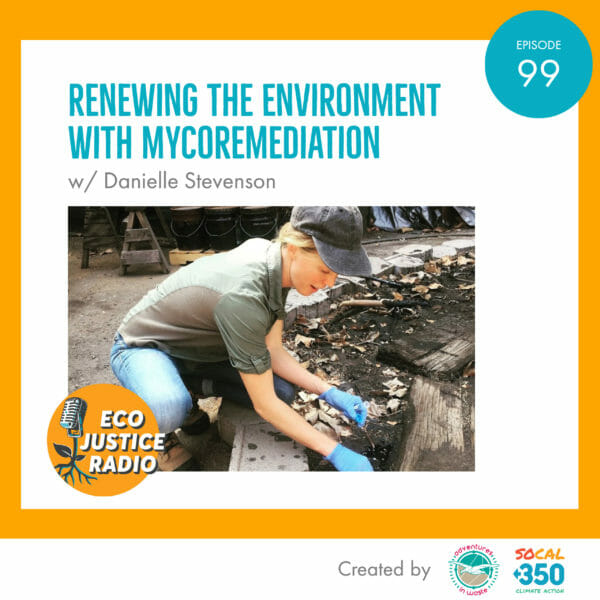
Interview by Carry Kim
Intro by Jessica Aldridge
Engineer: Blake Lampkin
Executive Producer: Jack Eidt
Show Created by Mark and JP Morris
Music: Javier Kadry
Episode 99
Image: Courtesy of Danielle Stevenson
Updated 6 April 2025



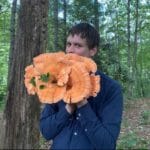
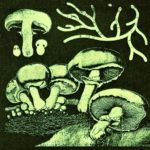
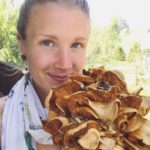


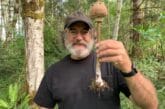




Pingback: After the Burn: The Benefits of Bioremediation with Taylor Bright
Pingback: Foray into Fungi: The Art of Farming with Sam Shoemaker
Pingback: Radical Mycology: The Future is Fungi with Peter McCoy